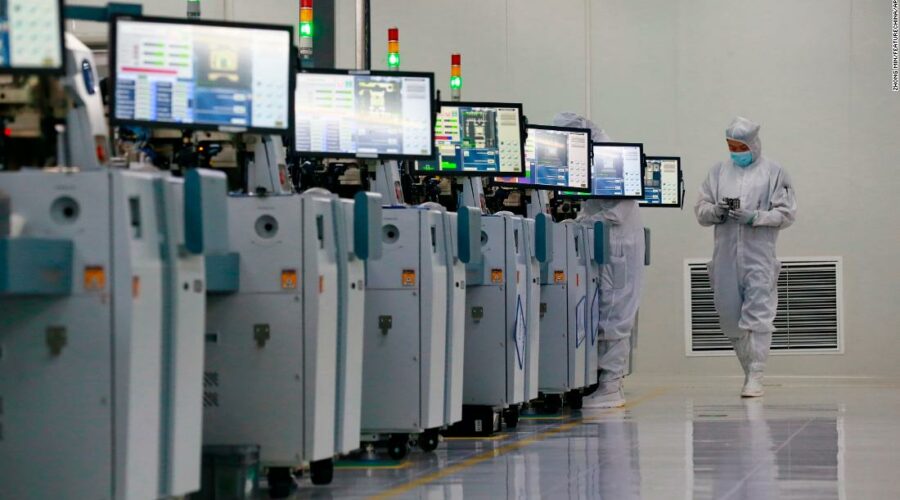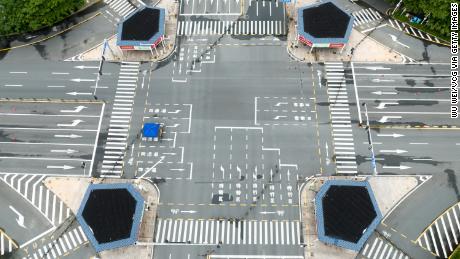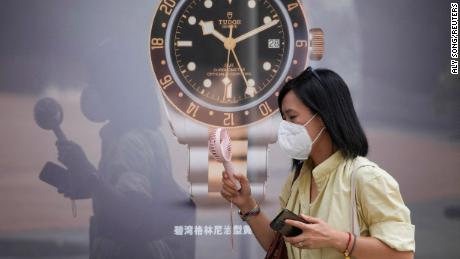Caught on camera: Bridge buckles in scorching heat
Hong Kong (CNN Business)China’s Sichuan province has ordered all factories to shut down for six days to ease a power shortage in the region as a scorching heat wave sweeps across the country.
Sichuan is a key manufacturing location for the semiconductor and solar panel industries and the power rationing will hit factories belonging to some of the world’s biggest electronics companies, including Apple (AAPL) supplier Foxconn and Intel (INTC).
The province is also China’s lithium mining hub — a key component of electric car batteries — and the shutdown may push up the cost of the raw material, analysts said.
China is facing its fiercest heat wave in six decades, with temperatures crossing 40 degrees Celsius (104 degrees Fahrenheit) in dozens of cities. The extreme heat has caused a spike in demand for air conditioning in offices and homes, putting pressure on the power grid. The drought has also depleted river water levels, reducing the amount of electricity produced at hydropower plants.
Sichuan, one of China’s largest provinces with 84 million people, told 19 out of 21 cities in the region to suspend production at all factories from Monday to Saturday, according to an “urgent notice” issued on Sunday by the provincial government and the state grid.
The decision was made to ensure that enough power is available for residential use, the notice said.
The southwestern province — which is also a key hydropower hub in China — has been gripped by extreme heat and drought since July. Since August 7, the heat wave in the province has intensified to “the most extreme level in six decades,” and average rainfall has dropped by 51% from same period in previous years, according to an article posted on the government’s website on Tuesday.
The province’s top officials warned Monday that Sichuan is currently facing the “most severe and extreme moment” in power supply, according to government-run Sichuan Daily.
Luzhou, a city in Sichuan, announced last week that it would shut off the city’s street lights during the night to conserve power and alleviate the pressure on the electricity grid.
Sichuan is rich in mineral resources like lithium and polysilicon — key raw materials in the solar photovoltaic and electronics industry. Many international semiconductor companies have plants in Sichuan, including Texas Instruments (TXN), Intel, Onsemi, and Foxconn. Chinese lithium battery giant CATL, which supplies batteries to Tesla (TSLA), also has a factory in the region.
Shutting down factories for the week could tighten the supply of polysilicon and lithium and push prices higher, Daiwa Capital analysts said in a note to clients.
Several Chinese companies have warned their production could be affected by the Sichuan power cut, including Sichuan Haowu Electromechanical, an auto part manufacturer, and Sichuan Lutianhua, which produces fertilizers and chemical products.
Apart from Sichuan, other major Chinese provinces — including Jiangsu, Anhui, and Zhejiang — have also urged business and households to conserve power as the heat wave has depleted electric supplies.
In some regions, offices have been ordered to increase their AC temperature to above 26 degrees Celsius or shut down lift services for the first three floors, so as to conserve electricity.
Inflation risk
The extreme heat in China has also resulted in crop failures in many parts of the country, adding to inflationary pressures last month.
“Affected by the continuous high temperature in many places, the price of fresh vegetables rose by 12.9% year-on-year, which was significantly higher than the same period in previous years,” Fu Linghui, a spokesperson for the National Bureau of Statistics, said at a Monday press conference in Beijing.
He pointed out that the extreme heat has caused droughts in some agricultural areas in the south. In the north, rainfall and flooding also resulted in some crop failures.
“August and September are the key periods for the formation of autumn grain production. [We must] pay close attention to the impact of natural disaster, insects and disease on our country’s food production,” he added.
Source: Read Full Article




